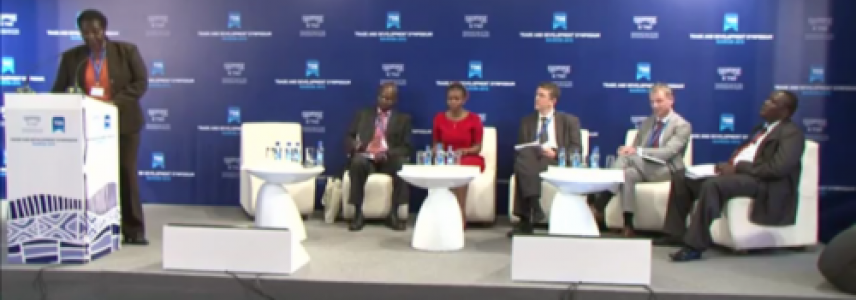CBI at Trade and Development Symposium in Kenya: ‘no organisation is an island’

The CBI event on “Public-Private Dialogue: Towards SME Integration into the Global Economy” in Nairobi, with a particular focus on Africa, discussed how to use public-private dialogue as input for governmental trade policy development to address supply-side constraints and demand-side requirements for SMEs.
From 15 until 18 December 2015, the tenth Ministerial Conference of the World Trade Organisation took place in Nairobi, Kenya. Alongside the Ministerial Conference, the International Centre for Trade and Sustainable Development (ICTSD) organised the Trade and Development Symposium. During this Symposium, CBI hosted a side event on “Public-Private Dialogue: Towards SME Integration into the Global Economy" with focus in Africa.
SMEs and the global trade environment
SMEs and Business Support Organisations in developing countries – particularly LDCs – are experiencing great difficulties in understanding and meeting the complex requirements of the global trade environment and the constantly changing rules of the game. For SMEs to be able to take full advantage of the opportunities offered by better integration into global value chains, solutions at the policy level are required to boost their export potential. It is therefore of paramount importance that the needs of the private sector and other players in international value chains are identified and taken into account at the early stages of the policy-design, e.g. through public-private cooperation and consultations as well as other multi-stakeholder initiatives.
Major constraints
Christophe Bellmann (ICTSD) highlighted three major constraints that SMEs are experiencing, which are access to credit, scaling up, and moving from the domestic market to the international market. When it comes to this third issue, SMEs particularly need help in complying with the public/private standards, recognition, connection with buyers and trade financing. He urged governments to start designing institutions to address the specific constraints of SMEs. Furthermore, it is essential to look into how the international policy frameworks can facilitate the integration of SMEs into the global economy. Areas of importance here are trade facilitation (reducing trade costs), systems and rules dealing with international standards, and digital trade.
CBI experience in the tea sector in Kenya
Patrick Gouka, Senior Programme Manager at CBI, and Phoebe Owuor, CBI Local Country Officer in Kenya, presented ‘best practices’ regarding public-private cooperation in the tea sector in Kenya. In Kenya, the CBI has been working on value addition in the tea sector since 2012, specifically on specialty teas and packed teas for the export markets. Several Business Support Organisations (BSOs) cooperate and team up with selected exporters to get the added value tea chain export market ready.
Subsequently, two CBI beneficiairies shared their practical experiences with the CBI programme. Samuel Ogola, Technical Services Manager at the Tea Directorate and BSO participant in the CBI programme, said that the CBI Programme helped the Tea Directorate to get insight into the constraints which SMEs are facing. Amongst others, this resulted in simplification of some of the rules.
George Omuga, General Manager at Ngorongo Tea Company Kenya, stressed the importance of the capacity building provided by the CBI, especially on market information and product development. Furthermore, he mentioned that the programme brought his company into contact with BSOs in the tea sector. He explained that the Ngorongo Company recently started processing purple tea, rather than just producing black tea, which is opening up other markets.
The voice of SMEs in Kenya
Carole Kariuki, CEO of the Kenya Private Sector Alliance, elaborated on the work of KEPSA, which is not only representing the voice of SMEs, but the voice of the entire private sector in Kenya. Ms. Kariuki highlighted the actions KEPSA is taking to bring the private sector closer to the policy makers.
The moderator closed the session by expressing her belief that the PPP-approach works, and the potential for SMEs to make a difference ‘if they are given the tools and the platforms they desire.’
The full session can be viewed here: http://tds.ictsd.org/content/public-private-dialogue-towards-sme-integration-global-economy
